Understanding Asthma: 10 Practical Tips to Manage Your Condition
Posted by Pankaj Dhiman on Sep 22nd 2023
Asthma is a common chronic respiratory condition that affects millions of people worldwide. If you or someone you know has asthma, you're probably aware of how it can disrupt daily life. However, with the right knowledge and strategies, you can effectively manage this condition and lead a fulfilling life. In this blog, we'll explore what asthma is and provide you with ten valuable tips to help you keep your asthma under control.
What is Asthma?
Asthma is a chronic respiratory condition that primarily affects the airways in your lungs. It can cause them to become inflamed and narrow, leading to symptoms such as wheezing, coughing, chest tightness, and difficulty breathing. These symptoms can range from mild to severe and may vary from person to person.
While the exact cause of asthma is not fully understood, it is believed to result from a combination of genetic and environmental factors. Triggers for asthma symptoms can include allergens like pollen, dust mites, pet dander, respiratory infections, cold air, and even stress.
10 Tips to Manage Your Asthma Effectively
- Work with a Healthcare Provider: If you suspect you have asthma or have already been diagnosed, it's crucial to establish a relationship with a healthcare provider who specializes in asthma. They can help you develop an asthma action plan tailored to your specific needs.
- Understand Your Medications: Familiarize yourself with your prescribed medications. There are two main types: relievers (for quick relief during symptoms) and controllers (to manage symptoms long-term). Follow your doctor's instructions for using them.
- Identify and Avoid Triggers: Recognize your asthma triggers and take steps to avoid them. This may involve making changes in your home environment, like using air purifiers or removing allergens.
- Use Peak Flow Meters: A peak flow meter is a simple device that measures your ability to breathe out forcefully. Regular use can help you and your healthcare provider monitor your asthma and make adjustments to your treatment plan if needed.
- Follow an Asthma Action Plan: Create a written asthma action plan in consultation with your healthcare provider. It should outline your daily treatment regimen and what to do in case of worsening symptoms.
- Stay Active: Regular physical activity can improve lung function and overall health. Consult your healthcare provider for exercise recommendations that suit your condition.
- Maintain a Healthy Diet: A well-balanced diet rich in fruits, vegetables, and lean proteins can support your immune system and help manage asthma. Avoid known food allergens if they trigger your symptoms.
- Stay Informed: Keep up-to-date with the latest asthma research and treatment options. Knowledge is power when it comes to managing your condition.
- Manage Stress: Stress can exacerbate asthma symptoms. Explore stress-reduction techniques such as mindfulness, yoga, or deep breathing exercises.
- Know When to Seek Emergency Help: Be aware of the signs of an asthma attack, such as severe shortness of breath, bluish lips or nails, and extreme difficulty speaking. If these occur, seek emergency medical attention immediately.
In conclusion, asthma is a manageable condition when you take the right steps to control it. By working closely with your healthcare provider, understanding your medications, and implementing these tips, you can significantly improve your quality of life. Remember, you're not alone in this journey, and there is support available to help you breathe easier.





























































